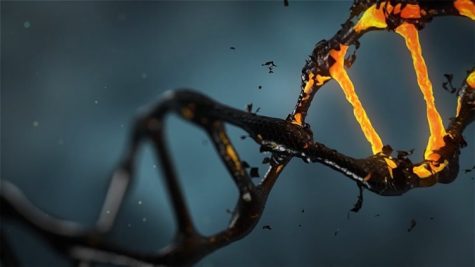CRISPR babies cause controversy among society
October 30, 2018
We’ve all heard of the infamous genetically-modified foods, while the topic quite controversial is not nearly as vexed as the idea of CRISPR babies. This biological breakthrough is defined as altering the genes of an organism. According to research done by Davidson College, CRISPR stands for “clustered regularly interspaced short palindromic repeats.”
There are unlimited possibilities to the future of biology that CRISPR could unfold, the thought of genetically modifying can often put an eerie look in the heads of many. Hearing the genetic potentials that CRISPR technology allows for gives a glimpse of hope for those fighting to prevent genetic mutations.
According to American biologist Shoukhrat Mitalipov, CRISPR cuts into the DNA of an embryo in order to naturally repair mutations which Time Magazine compared to “a word processor autocorrecting function fixes spelling mistakes.”
Not only can this modern technology fix mutations, it can potentially choose genetic compositions for an embryos such as eye color, height, and intelligence level. This is the area of CRISR that many question in terms of ethics.
According to the National Genome Research Institute genome editing can cause a wide variety of concerns. These can include: the obstacles of polygenic disorders, genetic enhancement being overused, and potential safety risks that haven’t been fully tested yet.
While science can be extremely interesting it can be equally as dangerous. Genome editing was first discovered in around 2005, the safety revolving around the process is still being tested. While the actual CRISPR tool was developed in 2012, which means it could take years to regulate the technology to it’s safest potential.
Science that is in the unknown range can pose dangerously scary results or backfires. This is why Mitalipov and his colleagues must continue to test the risks and outcomes of the embryos.
The thought of curing and preventing genetic diseases or disorders was the main drive for scientists, although enhancement of embryos can pose ethical concerns. The concern is not so much that babies must be capable of consenting their genetic compositions but that the science shouldn’t be manipulated to cause humans to genetically surpass each other.
The dangers involved in just simply changing an embryos eye color for a parents own enjoyment is not necessary nor ethical. More importantly the focus of CRISPR technology must be to improve the offspring of those with genetic mutations to make the human race’s survival stronger.











